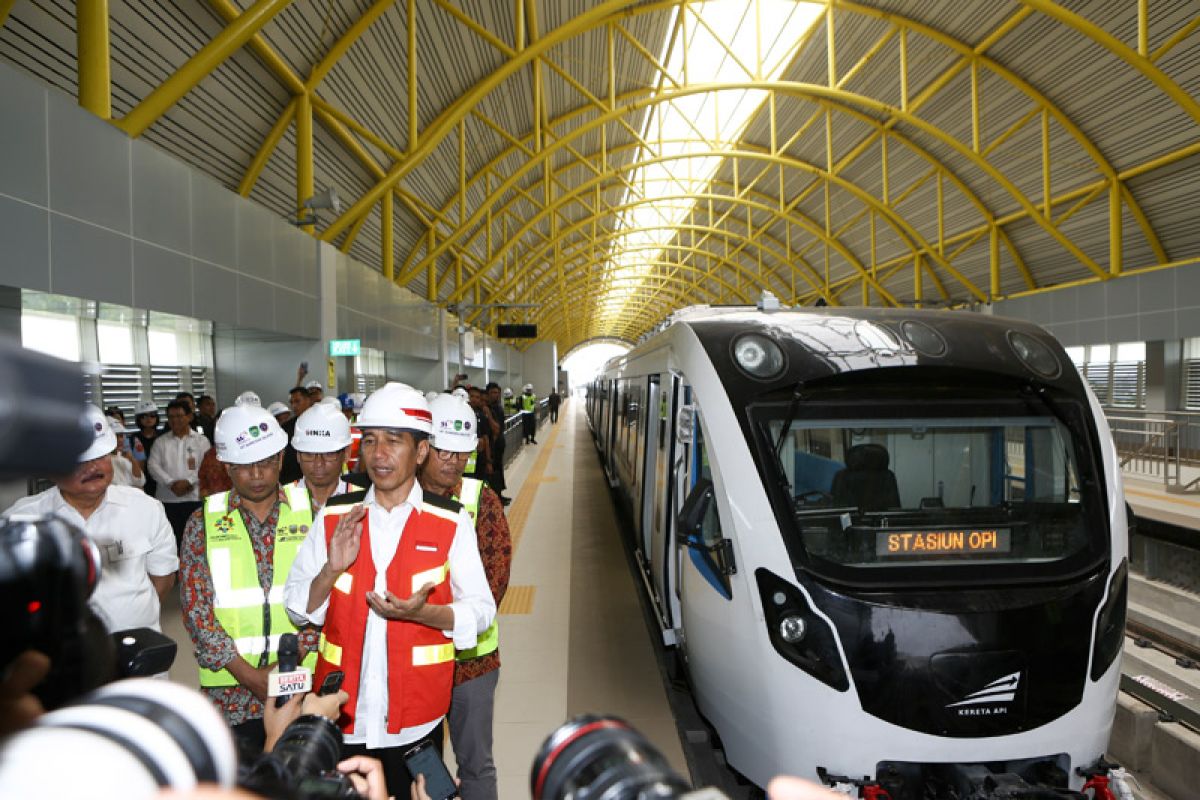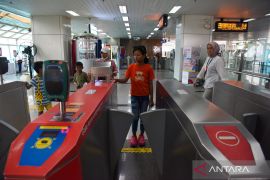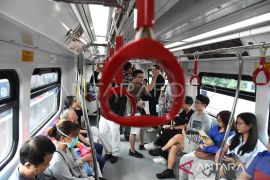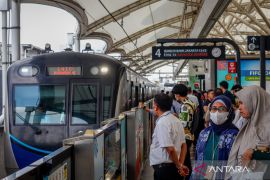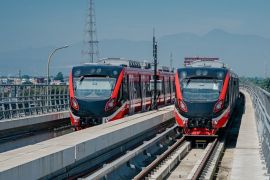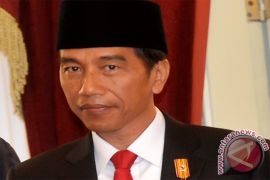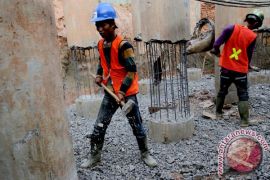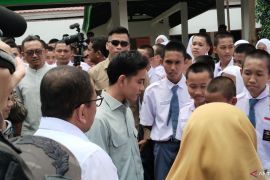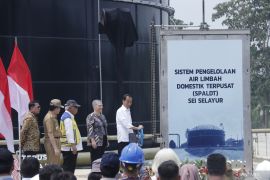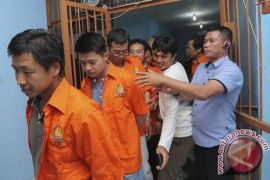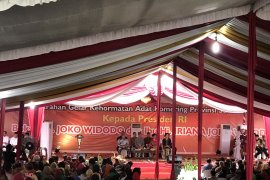Construction of the LRT with a 24-kilometer long elevated track extending between the Sultan Mahmud Badaruddin II International Airport and the Jakabaring sport center in the city took 2.5 years showcasing the capability of Indonesian engineers in building modern infrastructure facility .
The Rp10.9 trillion project has a local content of 95 percent. The cost is relatively cheap compared with those of Malaysia and Manila of the Philippines.
Why it could be cheaper? It is built by moderately paid local engineers with high local content.
The project was built by the state-owned construction company PT Waskita Karya.
Chief Executive of Waskita Karya I Gusti Ngurah Putra said the company used local engineers in doing all construction work. Imports were needed only for concrete strands, which are not yet produced locally.
The train cars are produced and supplied by the state-owned rolling stock company PT INKA, saving the government large foreign exchange.
A director of PT INKA Budi Noviantoro took pride especially in the design saying the LRT used coaches designed by Indonesians, adding, "this was not something usual."
"This was designed by ones eating cheap salad paid in rupiah. It is different if we use ones from Japan or Europe that have to be paid in euro," Budi said after accompanying President Joko Widodo (Jokowi) boarding the LRT on Friday.
The procurement cost for train sets is also relatively cheap at Rp48.5 billion compared with the prices of train sets paid by other countries, he said.
In addition, the South Sumatra LRT is the first in the World using non standard rails to adjust to the many sharp bends.
Construction of the project which began in 2014, is to be completed this month to be operational ahead of the 18th Asian Games in August this year.
Palembang and Jakarta will co-host the largest sports event in Asia.
The track is built over land along the main road in the city that the implementation of the project would not be delayed on difficulty in land clearing. Land clearing has been one of the main drag in the implementation of many infrastructure projects in the country. Land owners would put a much higher price when they know their land would be used for big projects.
With the many sharp bends, the rails are non standard in measure but designed specially to suit the condition and the speed of the train is limited to 50-60 kilometers.
"This shows the capability of the nation in innovation in building modern infrastructure in urban areas," an observer said.
The LRT uses engines imported from Germany as the country could not yet produces the components for the engines. PT INKA, however, said it is optimistic it is only a matter of time before it could produce the engine as progress has been made in researches by a number of Indonesian high educational institutions.
Meanwhile, PT INKA focused its efforts on producing train sets including for exports. PT INKA has exported 500 units of coaches of passenger train to Banglades, and three locomotives to the Philippines. Currently, INKA has received order from Thailand but the order is still being negotiated. More orders are expected from other countries .
President Joko Widodo said he is optimistic that Indonesia would in the future rank among the world class LRT producers.
The president said LRT would be built in other areas in the country, adding "This time South Sumatra, later Jakarta and plan is made for Medan, Surabaya and Bandung."
"It is not impossible that we would export LRT," he said while on board of the LRT on a trial run from the Icon Mall station to the Jakabaring station in Palembang.
He said the Indonesian made LRT is much more convenient than LRT he had tried in other countries, adding, "We deserve to be proud for what we have achieved."
The LRT is needed not only to facilitate transport during the Asian Games but also for longer term as it would cope with congestion in the city streets.
This system of mass transport will also be built in other large cities in the country.
The operation of LRT in Palembang is like the birth of new era in transportation . It will help reduce the use of private cars and would ease traffic jams, which are getting worse from year to year in the city.
It would also reduce air pollution by gas emission . The people would learn how to be more patient in queuing for ticket and would be more appreciative of time. They would learn to be more punctual in time and more disciplined. The change in human characteristics , however, is not expected to come at once with the operation of new system. It could take 10 to 15 years even in advanced nations.
The LRT in Palembang is integrated with other modes of transport including city bus, water bus , etc. .
In the first day of operation by the end of July, the ticket price is subsidized by the government. The tariff is only Rp5,000 from one station to the destination station. Readjustment, however, would be made in the tariff in December, 2018.
The subsidy is expected to serve as an effective stimulus for the people to travel with mass transport means to reduce congestion in city streets with private cars.
The South Sumatra LRT has gone through trial operation for certification in safety, and security including in acceleration, deceleration , brake system , noise, , tremors and temperature.
The tests are important as the LRT would operate 18 hours in 108 trips a day. The LRT is operated by the state-owned railway company PT Kereta Api Indonesia (KAI). The LRT is equipped with facilities such as air conditioners , CCTV and WIFI. (SYS/AS).
(T.SYS/B/H-ASG/C/F001) 16-07-2018 14:50:56
Reporter: Dolly Rosana/A. Saragih
Editor: Fardah Assegaf
Copyright © ANTARA 2018
